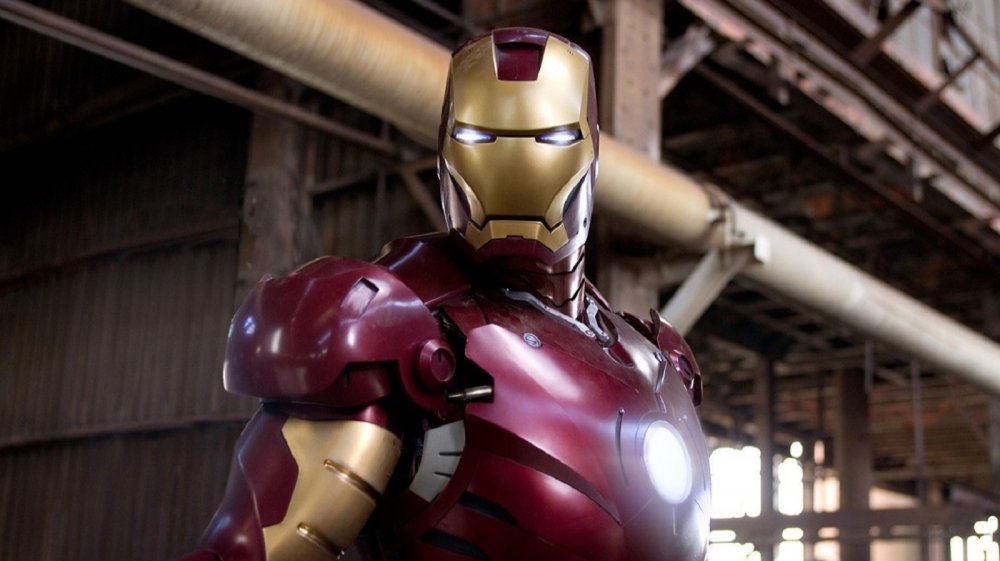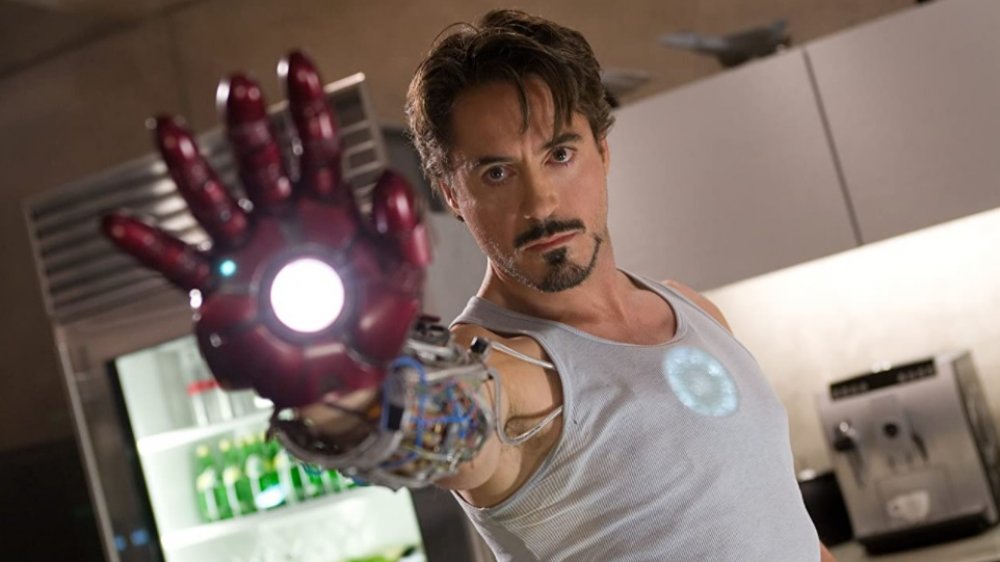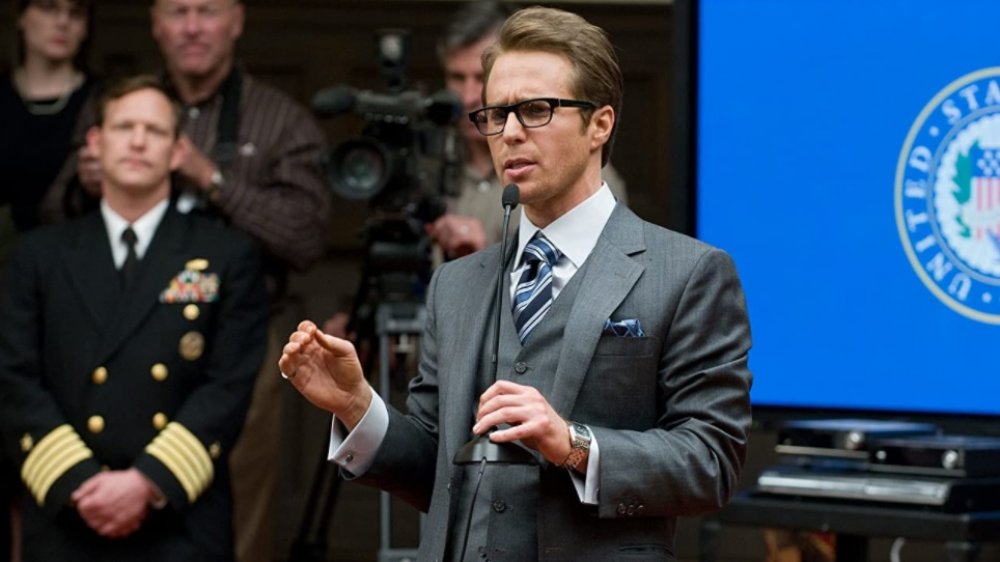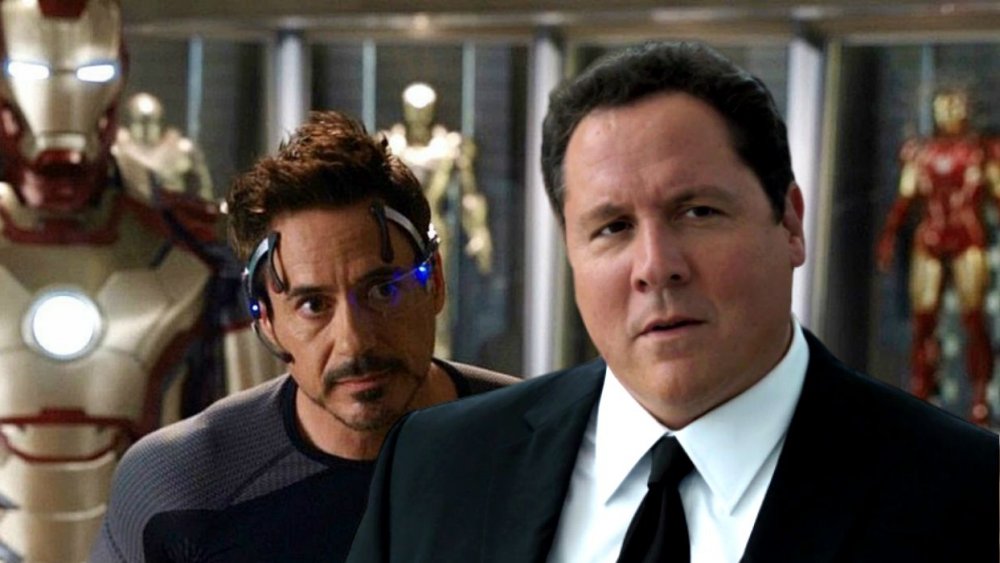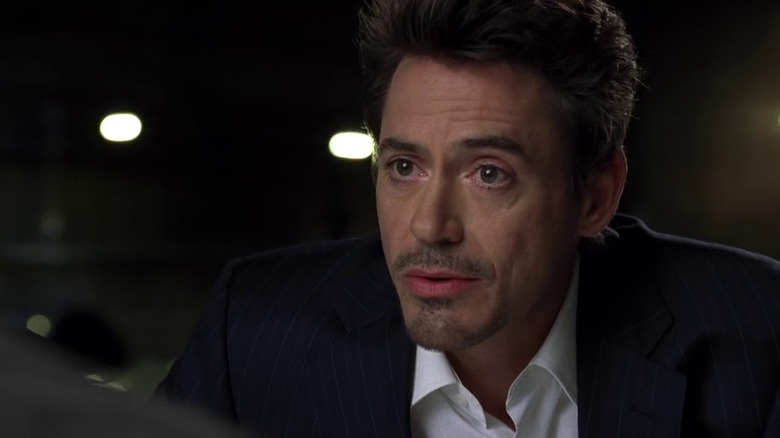Here's How Robert Downey Jr. Got The Job To Play Iron Man In The MCU
In April 2005, Hollywood trade publications reported an item that, at the time, seemed merely somewhat interesting, and a little puzzling. It appeared that Marvel, the venerable comic book publisher, had secured a $525 million revolving line of credit with Merrill Lynch to establish its own film studio. This was interesting because it seemed to be a pretty bold move for a company that had just emerged from bankruptcy seven years prior, and it was puzzling because Marvel had clawed its way back to relevance in large part by licensing its most popular characters to other studios. Fox had recently fielded two successful films based on the X-Men, and Sony had done the same with Spider-Man. With all of its characters except C-listers spoken for, it was worth wondering what exactly Marvel hoped to accomplish.
At the time, it was reported that Captain America and Nick Fury were among the properties most likely to be developed first — but behind the scenes, things were moving in another direction. Marvel had recently re-acquired the rights to Iron Man, a founding member of superhero team the Avengers, after they had been bounced to around to various studios for the previous fifteen years. Intensive market research had suggested that ol' Shellhead, as he was affectionately known by fans, was more likely to strike a chord with younger-skewing audiences, and so it was that, in April 2006, the newly-minted Marvel Studios announced that it had hired Jon Favreau to direct its first feature, Iron Man, with the search for a lead actor underway.
Of course, we know what happened next. Today, "Robert Downey, Jr. as Tony Stark" ranks among the most iconic pairings of actor and role of all time, and the Marvel Cinematic Universe is the biggest film franchise in history. But Downey was never a shoo-in for the part, and in an alternate universe, he never landed the role he was born to play, Iron Man flopped, and the MCU never existed.
Jon Favreau initially wanted an unknown actor to play Iron Man
Favreau began speaking to the press about his exciting new project quite early in the production process, which is how we know that the director had a pretty darned solid vision of where he wanted to go with Iron Man from the very beginning. In May 2006, barely a month after his hiring was announced, Favreau was outlining for MTV News the bones of what fans could expect from his picture, and the details he offered at that time turned out to be remarkably accurate. Iron Man, he said, would "take place in the present day," and would be an origin story in which we would see "the old, gray Iron Man suit," which would eventually "progress into more of the modern look." The story would explore "[Stark] taking on this alter ego of Iron Man, and developing the suit, and [deal with] what happens politically within the Stark Corporation."
There was one key detail, though, about which Favreau would soon be whistling a different tune. Taking a cue from the then-recent success of Fox and Sony's Marvel movies, the director warned fans that they shouldn't expect to see a name actor taking on the title role. "What's nice is that those movies don't require an expensive star; Iron Man's the star, the superhero is the star," Favreau said. "The success of X-Men and Spider-Man without being star-driven pieces reassures [executives] that [Iron Man] does have an upside, commercially" (via IGN).
To be sure, there's something to be said for that strategy; Christopher Reeve, for example, had been an unknown until he was cast in 1978's Superman, and that had worked out pretty well. Indeed, early in Iron Man's casting process, Favreau was looking at actors who weren't exactly household names, including one who would pop up later in the franchise in a much different role.
Sam Rockwell was considered for the part of Iron Man
Sam Rockwell, an experienced supporting player who had recently appeared in such flicks as The Hitchhiker's Guide to the Galaxy and Snow Angels, was on Favreau's short list of potential lead actors while Iron Man was in pre-production. Of course, Rockwell would eventually be cast in 2010's Iron Man 2 as Justin Hammer, a shady fellow industrialist and weapons manufacturer with a silver tongue and a serious lack of scruples — and shortly after he was cast in that role, the actor let slip to MTV News that he had spoken to Favreau about taking on the lead in the original film, saying, "We had a phone conversation about it, and then I didn't hear anything, and that was it."
As Favreau would later explain, there was a reason for that. At a certain point in mid-2006, the director began to convince himself that hiring a relative unknown might not necessarily be the best choice if, indeed, the best actor for the role didn't fit that description. He began to see a supremely troubled former A-lister in the role — one whose recent life experiences he thought could brilliantly inform the characterization of Tony Stark, who had seen his share of similar troubles over the years in the pages of Marvel comics.
Jon Favreau settled on Robert Downey Jr., and stuck to his guns
At that time, Robert Downey Jr. was known for two things: Being a phenomenally gifted, Oscar-nominated actor (for 1993's Chaplin), and seemingly being determined to enact his own self-destruction via drugs and alcohol. His struggles with substances throughout the '90s and into the new millennium had led to more than a couple very public flameouts, and between 1999 and 2000, he had even served nearly a year in prison on drug and weapons charges. Since then, though, he had diligently raised his profile through appearances in flicks like 2003's Gothika and 2005's Kiss Kiss Bang Bang, and Favreau saw in him an actor who could convincingly portray Stark's cockiness and arrogance as well as his self-doubt and inner turmoil. In order to get his man, though, the director would have to persuade Marvel Studios.
Favreau laid out his argument in an April 2007 chat with USA Today, after Downey had been cast. "We didn't want to just go with a safe choice," Favreau explained. "The best and worst moments of Robert's life have been in the public eye. He had to find an inner balance to overcome obstacles that went far beyond his career. That's Tony Stark. Robert brings a depth that goes beyond a comic book character who is having trouble in high school, or can't get the girl. Plus, he's simply one of the best actors around."
Years later, in a 2014 interview with a Texas radio station, Favreau would clarify that he had suggested Downey to Marvel's brass multiple times, and was repeatedly shot down (via CinemaBlend). Fortunately, he was able to do perhaps the one thing capable of making those execs change their minds: Get Downey in front of the camera for a screen test.
Robert Downey Jr.'s epic screen test sealed the deal
In a featurette included on the Avengers: Endgame Blu-ray, Iron Man casting director Sarah Halley Finn recalled just how crucial that screen test was to Downey's casting. "Jon was in love with the idea of Downey playing the part, and we all felt so sure about him on a creative level," she explained. "Because he wasn't instantly a slam-dunk approval, I suggested we have screen tests ... The day of the tests, [Downey] was laughing, in great spirits, completely at ease. .. [And he] started saying the lines ... [and] it was magic. It was exactly the feeling, as a casting director, with [Marvel boss] Kevin [Feige], with Jon, with everyone, we all [had] that feeling, like, 'We have it. This is it. This is Iron Man.'"
Downey read three scenes: The back-and-forth with reporter Christine Everhart (Leslie Bibb) early in the film, a version of the banter with the soldiers in the "Fun-Vee" during the movie's opening scene, and a debate with Stark's friend and confidante James Rhodes (Terrence Howard) that didn't make it into the final picture. The screen test finally brought Marvel around to the idea of casting Downey, and the rest, as they say, is history. Without Downey, Iron Man would have been a very different film. Famously, a goodly portion of the flick's dialogue was improvised — Stark's brief monologue before demonstrating the Jericho missile, for example, was written by Downey on the spot, and he improvised the film's iconic final line — and it's quite likely that absent his influence, the movie would have failed to launch the world-beating MCU.
As an interesting post-script, Downey wasn't the only actor to screen test for the role. In a 2017 appearance on Conan, Deadwood actor Timothy Olyphant revealed that he, too, had read for the role before the cameras — and on the same day as Downey, no less (via ComicBook). How did that work out?
"I'm still waiting to hear back," Olyphant deadpanned.
